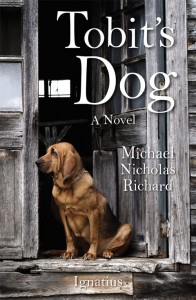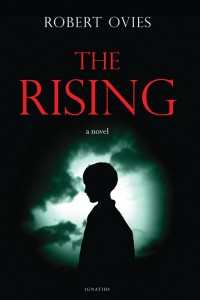-

Arthur Powers, author of The Book of Jotham, reviews Tobit’s Dog: “You should read this book,” Marguerite – the owner of In His Name, our local Catholic book store – told me. She has started a section of North Carolina writers, and Richard’s book was right next to mine. She knows books, and… Read more »
-
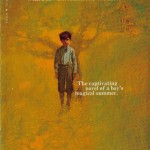
I recently read Ray Bradbury
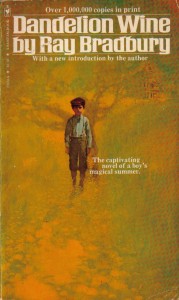 ’s beautiful book Dandelion Wine. It is incredibly evocative of what being a child is like. I found myself pausing repeatedly in my reading as Bradbury’s prose jostled memories of my own childhood: the first realization that, yes, I was a real person and really truly alive; walking in the moonlight during a warm night and suddenly going from comfort to fear; the first real awareness of mortality; the joy of being allowed to stay up late and share in the world of adults; the foods, activities, music that come with summer.
’s beautiful book Dandelion Wine. It is incredibly evocative of what being a child is like. I found myself pausing repeatedly in my reading as Bradbury’s prose jostled memories of my own childhood: the first realization that, yes, I was a real person and really truly alive; walking in the moonlight during a warm night and suddenly going from comfort to fear; the first real awareness of mortality; the joy of being allowed to stay up late and share in the world of adults; the foods, activities, music that come with summer.Ray Bradbury uses the metaphor of dandelion wine to represent capturing summer in a bottle, one that can be opened and shared even in the dead of winter to awaken those remembrances of joy and warmth. Bradbury’s writing is itself a bottle of that wine—I’m not sure how he did it, but he captured magic with his words. He himself humbly described how he felt when reading his own work: “Every so often, late at night, I come downstairs, open one of my books, read a paragraph and say, My God. I sit there and cry because I feel that I’m not responsible for any of this. It’s from God. And I’m so grateful, so, so grateful.” Read more »
-

IP Novels Digest: 4th of July Edition
by Ignatius Press Novels
July 3, 2014 12:00 pm Leave a Comment
Check out these reviews and pick up some good novels to read for your long weekend! Happy Independence Day!
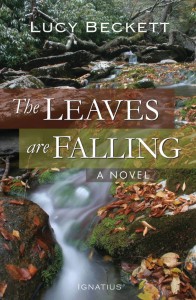
John Jollife from The Tablet reviewed The Leaves Are Falling:
This is the story of Josef, a Jewish boy who miraculously escapes from the devastation of wartime Lithuania, having lost all his family through the twin genocides carried out by the Nazis and the Russians…. In an important sense, England was not a part of Europe during the war, but adjacent to it. However much we suffered in the bombing and the fighting, we never knew invasion or occupation, or had to face the terrible choice between resistance and collaboration. And, of course, thanks to the Americans and the Russians, we were on the winning side. The worst of the horrors took place in Eastern Europe, and since they were hardly reported here when other dangers and disasters were so much nearer at hand, we were able to turn a blind eye. So as well as being a sensitive and evocative story, Beckett’s novel is a salutary eye-opener on what the eastern half of Europe suffered, and on what moulded its future for the next fifty years. And although it is an acutely personal story, like her sensitive and gripping previous novel, A Postcard from the Volcano, set in pre-war Germany, it reveals more of the truth about the twentieth century than many a textbook collection of facts can hope to do. Read more »
-
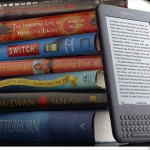
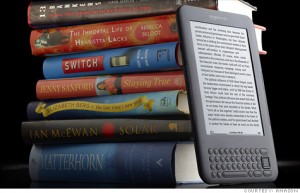
My official title at Ignatius Press is ‘E-book Editor’, so I’ve had a few people ask me questions like: Can you compare e-books with paperbacks? What are the advantages and/or disadvantages of electronic books? Is this the end of libraries? Is this the beginning of the end of print books? Don’t you miss the smell of real books? Can you borrow/lend e-books? Are e-books the devil? The list goes on… To an avid reader, such as myself, these questions are important, and I’ll try to answer them as best I can.
I began my e-book editing/designing career back in 2009, when Fr. Fessio invited me and two other students from Ave Maria to come to San Francisco for the summer. I had no experience with writing HTML code or OCR text recognition or typesetting or editing (beyond my own school assignments), or publishing for that matter. I came into this field with a clean slate, so I have seen it develop, change, and grow quite a bit. Now, I can tell you exactly what happens to a book, from the time it’s an idea in an author’s head down to the finished, printed and beautifully bound print book and, of course, the e-book. Read more »
-

More bloggers are raving about our novels!
Nancy Ward and Kelly Hansen reviewed Tobit’s Dog:
Tobit’s Dog is a love story amid the battle between heaven and hell for the souls of the good guys as well as the racists, murderers, rapists, thieves and connivers not portrayed in the biblical version of the Book of Tobit. In this imaginary take on the Book of Tobit, exciting enough a tale, Richard skillfully uses the characters, symbols, and scriptural principles. All the vital elements are there: Tobit’s sudden blindness and miraculous healing. Prejudice and bravery — this time, involving a lynching and Tobiah’s arrest for his compassion toward the boy hanging from a tree…. Reading the Book of Tobit a little along with Tobit’s Dog brought me great pleasure and insight into the plots of both books. The Book of Tobit, however, has no holy water from Lourdes, Negro nuns or KKK. Read more »
-

Novels often fall into the trap of offering easy redemption. The wayward soul sees the error of his ways, has a quasi-mystical experience, and sets off on the road to the straight and narrow. It’s what we want to happen—even if it sacrifices some of the reality of human behavior… Read more »
-

Don’t take our word for it! These bloggers think our novels are great too! Maria Garcia, Shelly Kelly, and Amy Flamminio reviewed The Rising: “I was drawn into this book from the first chapter & had trouble putting it down. The author tells the story in the third person narrative style, which fits… Read more »
-

I’ve been asked by many how this story came to be. Where did the idea originate? How was the “superstructure” of the story assembled? How long did it take to compose Toward the Gleam? These questions are asked of many authors about many novels. Some story writing happens so organically… Read more »
-

It’s a Mad Mad World: Suffering and Inspiration Part II
by Meryl Kaleida
June 13, 2014 2:42 pm Leave a Comment
Yesterday, we heard of the tragedy in the Diocese of Phoenix. There was a shooting at a high school in Portland, Oregon on Tuesday. There was another school shooting last week in Seattle, Washington. At the end of May, a man went on a shooting rampage on the campus of… Read more »
-
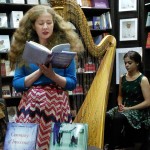
My doting husband and I took the train to London this weekend to promote Ceremony of Innocence and support another Ignatius Press novelist and a Catholic book shop in the process. Our expenses, which came out of our savings, were approximately £678, which is to say, the British equivalent of $1,137.27.
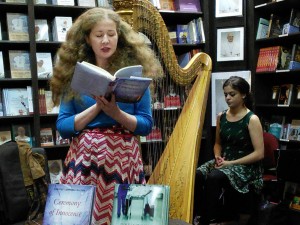
To put this into perspective, London is an expensive city, and we neither ate at McDonald’s nor confined our sightseeing to churches. So you may subtract £200, or $335.45, to get a reasonable picture of what it costs to go by train to London from Edinburgh and stay in a budget hotel for a weekend.
London, of course, is a city of endless cultural delights and, in our case, dear friends. We visited museums and churches, attended Mass and feasted with pals. But, naturally, we hoped to sell a lot of books, too. This, as I more than once reminded my museum-crazed husband, was our reason for going.





